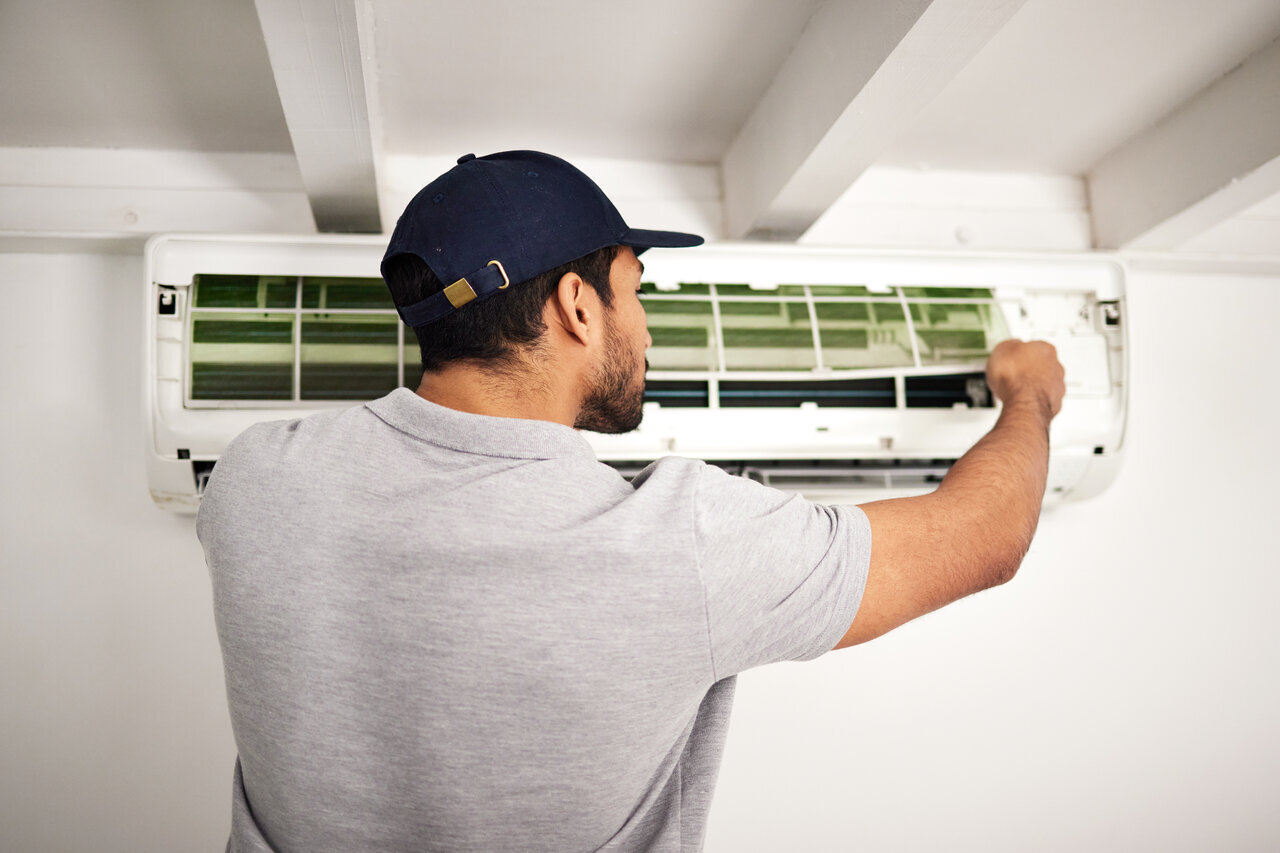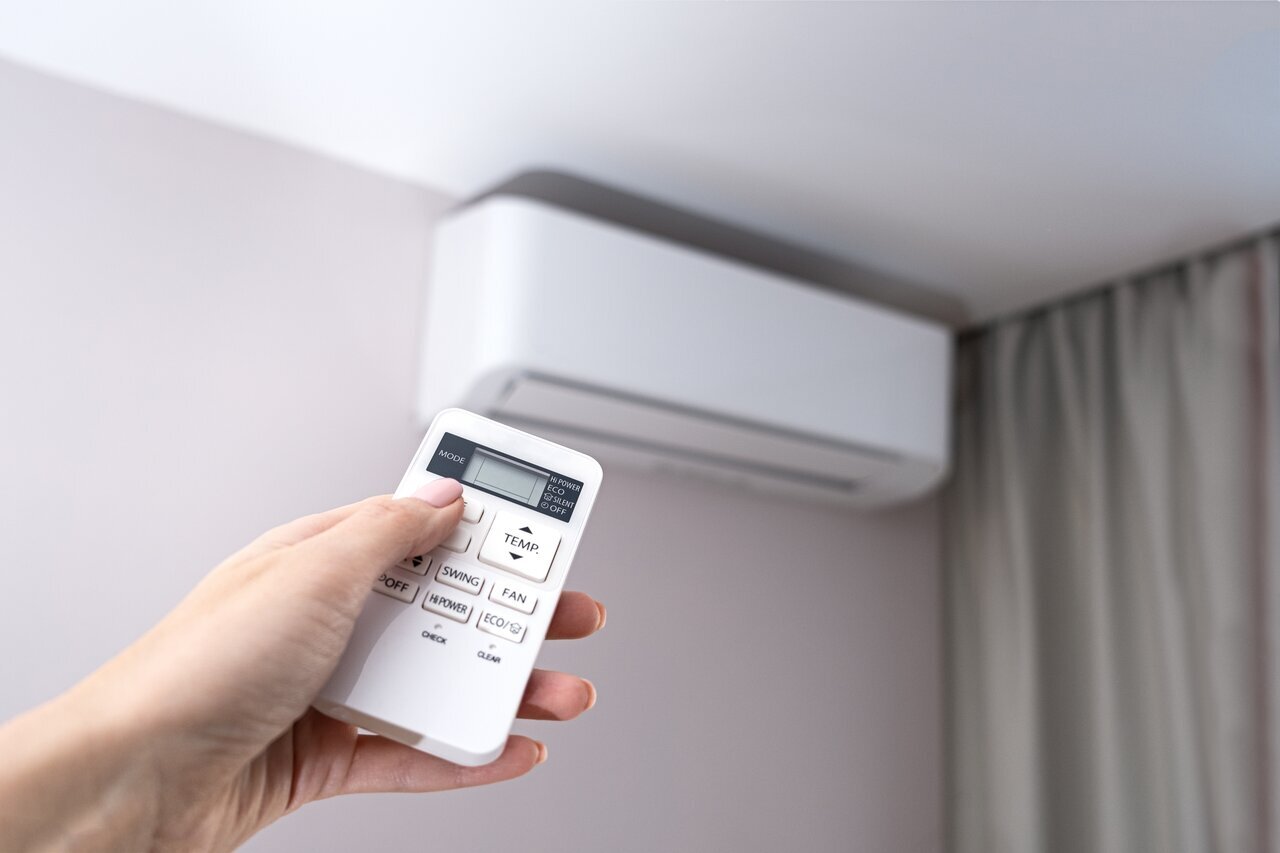Minimizing HVAC Energy Cost
Picture this: you’re basking in the glorious California sun, enjoying the beauty of Orange County, when suddenly you find yourself in the icy grip of an outrageous energy bill. It’s enough to make even the sunniest of dispositions turn frosty.
Homeowners and businesses often find themselves grappling with soaring energy bills, often stemming from inefficient heating, ventilation, and air conditioning (HVAC) systems. The cost of HVAC can sometimes leave us feeling a bit frosty, especially when it comes to our wallets.
But don’t worry.
In this blog, Orange County HVAC experts will shed light on the science behind energy efficiency in HVAC systems and help you understand what exactly makes an HVAC system more energy efficient. Moreover, we’ve compiled a list of 16 tips to lower your energy costs. From simple tweaks to smart habits, these witty suggestions will help you cool your expenses while keeping your cool.
So, buckle up and prepare to be enlightened.
What is Energy Cost?
Energy cost – the elusive expense that often leaves us scratching our heads. Energy cost refers to the amount of money we spend on various forms of energy, such as electricity, gas, or fuel, to power our homes, businesses, and everyday activities. It’s the price we pay for the convenience and comfort that modern energy systems provide.
When it comes to HVAC systems, energy cost specifically refers to the expenses incurred in heating, cooling, and ventilating our indoor spaces. These systems consume energy to regulate temperature, maintain air quality, and ensure our comfort. However, the energy required to power HVAC systems comes at a price, and it can vary depending on factors like energy rates, system efficiency, and usage patterns. The amount of energy cost also depends on many factors, including where you live, the type and size of your house, and what appliances you use in your home.
HVAC Energy Cost in Orange County
Orange County, where the sun shines bright, and the HVAC energy costs can sometimes cast a shadow on our wallets. Located in Southern California, Orange County is known for its beautiful weather and desirable climate. However, with the luxury of year-round comfort comes the need for efficient HVAC systems that can handle the demands of cooling during hot summers and occasional heating during mild winters.
When it comes to HVAC energy costs in Orange County, a few key factors come into play. These include the region’s warm climate, electricity rates, size and efficiency of your HVAC system, etc.
According to a recent study conducted by the U.S. Department of Energy (DOE), the HVAC energy cost in Orange County is more than $1,500 per year. The study analyzed data from more than 1 million buildings across the nation and found that commercial buildings in Orange County spent an average of $1,516 annually on heating, ventilation, and air conditioning (HVAC) systems.
The DOE estimates that Americans spend approximately $100 billion each year on energy costs for their building’s HVAC systems. This includes the cost of electricity and natural gas used to power the equipment necessary to heat or cool buildings.
Science Behind Energy Efficiency in HVAC System
When it comes to assessing the energy efficiency of Orange County HVAC systems, there are key scientific ratings that provide valuable insights. These ratings help consumers and professionals make informed decisions about equipment selection and compare the energy performance of different systems.
Let’s take a closer look at these important ratings and the impact they have on energy efficiency.
- Seasonal Energy Efficiency Ratio (SEER): The SEER rating is a measure of HVAC system efficiency and is calculated by dividing the cooling output of a unit by its energy input. The higher the SEER rating, the more efficient your HVAC system is. A SEER rating of 10 means that the unit uses one-tenth of the energy it would take to cool or heat an area one time. If you’re looking for an efficient new unit, look for a SEER rating between 14 and 19. SEER ratings vary depending on whether your HVAC system is designed for heating or cooling, so be sure to check what applies in your case.
- Annual Fuel Utilization Efficiency (AFUE): This rating indicates how much of the fuel being used by your HVAC system is being converted into heat and air conditioning for your home or business. The higher this number, the more efficient your system is at using fuel for heating and cooling your home or business.
- Energy Efficiency Ratio (EER): EER is similar to SEER but focuses on the cooling efficiency of air conditioners and heat pumps under specific conditions. It represents the ratio of cooling output to electrical energy input at a fixed outdoor temperature (typically 95°F or 35°C). A higher EER indicates better energy efficiency, and systems with high EER ratings are often suitable for regions with hot climates with high cooling demands.
- Coefficient of Performance (COP): The Coefficient of Performance (COP) is another important rating that’s expressed as a number between 1 and 100. It measures how much cooling or heating power an AC unit produces per unit of electricity consumed by the unit. Like EER, higher numbers are better here—but unlike EER, COP ratings don’t have upper limits like 1–100!
What Makes An HVAC System More Energy Efficient?
HVAC systems are a big part of the energy efficiency puzzle. They are responsible for a huge chunk of your home’s energy use, and it’s not just because you’re running them all day.
There are many things that make an HVAC system inefficient, including:
- High SEER Rating (Seasonal Energy Efficiency Rating): This stands for Seasonal Energy Efficiency Ratio and measures how much cooling power your system uses compared to other systems in its class. The higher this number is, the more efficient your system will be.
- High AFUE Rating: You should also ensure that your HVAC system has an AFUE rating of 90% or higher. This stands for Annual Fuel Utilization Efficiency and indicates how well your furnace can convert fuel into heat over time. It ensures that most of the fuel being burned is used up rather than wasted as waste heat from combustion processes within the furnace itself–which would lead to higher utility bills overall!
- Energy-Efficient Motors: Another thing to look for in an HVAC system is whether or not it has energy-efficient motors. If you have an older unit with older motors, they may be too big or inefficient to work well with today’s systems—which can cost you money on your monthly utility bill! You’ll want to upgrade your system once you see how much money you could be saving each month by upgrading its motor(s).
- Proper System Sizing: Properly sizing your heating and cooling system is key to ensuring you get the most out of your HVAC unit. The best way to do this is by calling your local HVAC professional in Orange County and having them perform an inspection of your existing system to determine what size unit will work best for your home’s needs.
- Variable Speed Technology: Variable Speed Technology (VST) allows for more efficient air delivery. When the compressor runs at low speeds, it uses less energy but still keeps your air conditioner running at the temperatures you need it to be.
- Energy Recovery Ventilation (ERV): An energy recovery ventilator (ERV) is a device that captures stale air from your house and uses it to cool or heat fresh incoming air. This means you don’t have to use as much energy to heat or cool your home because the HVAC system itself uses up less energy.
16 Tips on How to Lower Your Energy Cost of HVAC System
We all want to live in a comfortable home, but the energy cost of heating and cooling your home can add up quickly.
Did you know that the energy efficiency of your HVAC system could account for up to 25% of your home’s total energy usage?
If you want to know How to Save from Your HVAC energy bills, there are several simple changes you can make that will help lower the cost of heating and cooling your home.
Here are 16 tips on how to lower the energy cost of the HVAC system:
- Set your thermostat wisely: You should know that setting the thermostat too low can cause damage to your HVAC system and make it more expensive to run (and not just in terms of energy). If you want to save money on your energy bills, set it at a comfortable temperature, and don’t worry if it’s not as cold as you’d like.
- Utilize programmable thermostats: Another way of lowering your energy costs is by using programmable thermostats. These devices allow you to control your heating or cooling remotely from anywhere in the world using your phone or computer. The best part about these devices is that they allow users to save money on their energy bills because they automatically change temperatures based on certain factors such as time of day/day of week/season etc… For example, if it is summertime, then these devices will automatically turn off fans when nobody is home so that no one gets hot air blowing directly on them while sleeping at night.
- Keep air filters clean: Keeping your home’s air filter clean will help your heating and cooling system run more efficiently, saving money on energy costs! A dirty filter can cause your HVAC to work harder than it used to, leading to higher energy bills. To keep your filter clean, just vacuum it every month or so (depending on how much dust gets tracked into your home). Call a professional AC filter replacement expert if your air filters are not usable.
- Seal air leaks: Air leaks can be a major source of wasted energy, so make sure you have a good seal around all doors and windows and around ducts that go through walls. You can check for leaks by using an infrared thermometer or smoke pencils (available at hardware stores). If you find any leaks, use caulk to seal them up!
- Upgrade to energy-efficient HVAC equipment: If you’re looking to lower the energy cost of your HVAC system, one of the easiest ways to do so is by upgrading your existing equipment. While it may seem like a daunting task, there are numerous resources available that can help you find the right equipment for your home or office. For example, Morris Air & Electric has licensed HVAC experts devoted to helping consumers find their ideal HVAC system.
- Implement zoning: Another easy way to reduce your energy bill is by implementing zoning in your home or business. Zoning allows users to adjust temperatures throughout different areas of their property without sacrificing comfort levels. This can be especially helpful if you don’t want certain rooms getting too hot or cold while others remain comfortable all year round!
- Use energy-saving modes: Energy-saving modes can help you reduce the cost of heating and cooling your home. For example, if you’re only going to be at home for a few hours, set your thermostat to a lower temperature. This will save you money on your utility bill and decrease your carbon footprint.
- Keep vents clear: Clogged filters can reduce airflow and increase the energy consumed by your HVAC system. Clean or replace them regularly, or get an air filter that’s easy to clean (like one made of washable foam) so you don’t have to replace filters as often.
- Embrace natural ventilation: The most effective way to lower the energy cost of your HVAC system is to embrace natural ventilation. Natural ventilation is a process where air is naturally drawn into a room through vents and openings, like windows and doors. It’s an easy way to keep your home at a comfortable temperature without having to rely on your heating or cooling system.
- Insulate your home: If possible, insulate your home’s walls and ceiling with closed-cell spray foam insulation so that you can keep more heat inside during the winter months and less heat outside in the summer months. Closed-cell spray foam insulation is a great investment because it doesn’t lose its effectiveness over time like regular fiberglass insulation—so you’ll save money on utility bills year after year!
- Maintain an HVAC system: A well-maintained HVAC unit will run in a more efficient manner and save you money on energy costs. This can be done by regularly cleaning the air ducts, filters, and coils. Also, ensure the ducts are properly sized and insulated to suit your needs.
- Optimize airflow: Airflow through the HVAC system is essential in order to maintain comfortable temperatures in your home or office. To optimize airflow, ensure that there are no obstructions in the ductwork or equipment, such as dirty filters or vents. You should also make sure that all vents are open when cooling or heating your building.
- Use ceiling fans: Ceiling fans can assist in lowering your energy bills by circulating cool air throughout your home when it’s hot out and warm air when it’s cold outside. They also ensure that heat doesn’t build up in one area of your home so that everyone stays comfortable all year.
- Use energy-efficient lighting: When choosing light bulbs for your home, look for ones that have high energy efficiency ratings (known as lumens per watt). These will last longer than traditional incandescent bulbs while using less electricity each month—saving you money on both fronts!
- Close blinds and curtains: Closing your blinds can help to reduce the amount of sunlight that gets through your windows and into your home, which means less energy is required to keep up with rising temperatures.
- Educate household members: Children and pets can majorly cause increased air conditioning costs due to their inability to regulate body temperature properly. If you have children, teach them how they can help by keeping their rooms cooler by dressing appropriately, turning off lights when they leave rooms, and closing doors behind them as they enter new rooms (i.e., don’t allow hot air from outside into living spaces). Educate pets about proper behavior as well—if they are left outside for long periods without shade or water access during summer months, they will likely overheat, which will cause a larger AC unit load than normal until temperatures return closer to normal levels again!
Call Morris Air & Electric for All Your HVAC Needs in Orange County, CA!
If you are experiencing a less-than-ideal air conditioner performance, then it is possible that the problem lies with the air filter.
Air filters are designed to keep dust and debris out of your air ducts and to prevent these particles from damaging the coil or blower. When they get dirty, they can cause your system to work harder and use more energy. Replacing an old filter with a new one can enhance the efficiency of your HVAC unit by up to 30%.
At Morris Air & Electric, we offer regular AC filter replacement services in Orange County, CA, so we can keep your home running smoothly and efficiently. We’ll change out your current filter with one that meets all of the manufacturer recommendations for your system type.
When you call us for AC filter replacement services, you can expect:
- Professional, knowledgeable HVAC technicians.
- A fast response time.
- An honest diagnosis and repair estimate with no hidden fees.
- A full range of AC filter replacement services, including New AC filters & parts installation
- AC filter removal and disposal services
- 24/7 emergency service available
- A thorough inspection of your system, including an analysis of your filter’s condition.
- A fair price for a quality service.
- A thorough cleaning and inspection of the inside of your air ducts.
- An honest assessment of what needs to be done to keep your system running at peak performance and how long it will take to get the job done.
We also provide annual inspections and tune-ups for all types of systems, including furnaces and air conditioners. Our HVAC technicians are trained professionals who have been certified by the EPA (Environmental Protection Agency). They will check all components of your system and ensure everything is running smoothly so you can enjoy comfortable temperatures all year long!
So what are you waiting for? Give us a call today at (833) 482-2349 and book an appointment with our HVAC experts in Orange County!






